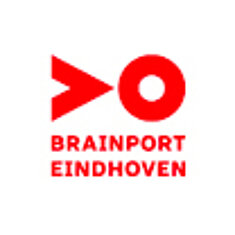International remote working: a solution to the need for talent

International remote working: a solution to the need for talent
In this competitive labor market, the need for talent has become an essential task for employers globally. In the Brainport region, international talent is a topic on everyone's lips and a trend the region has been observing and working on, especially when attracting skilled international workers. However, in recent years, the influx of international talent in the Brainport region has become a polarizing topic with visible side effects, impacting notably the housing market, healthcare sector, and various other areas.
Stakeholders in the Brainport region are working together to address these challenges and develop possible solutions, in this case, hybrid and remote working. Hybrid international remote working is among the solutions being explored to alleviate these increasing pressures.
For Brainport Eindhoven, hybrid international remote working possesses a solution to help the ongoing 'war on talent' in a tight labor market and should be considered by companies in the region.
To know more about how hybrid international remote working can benefit employers in the region, Brainport Development commissioned a study on (from here on referred to as) 'international remote working' and how this can be a potential solution to labor market shortages. Through desk research, labor market analysis, discussions, and surveys, the following two questions were addressed:
- What opportunities does international remote working offer employers in the Brainport region, and;
- What is employers' demand in the Brainport region regarding international remote working?

What is international remote working?
International remote working is a collaborative arrangement where employees work from home or other external locations using information and communication technologies to communicate with colleagues and clients instead of commuting to central workplaces. Hybrid means that work can be done from both a location abroad and a location in the Brainport region.
However, not every role is suitable for international remote working. Suitability depends on location dependency, collaboration, use of specific materials, and task dependency. Highly educated professionals in sectors such as finance and insurance, communication and information, and the technical industry are particularly suitable for such an arrangement.
Opportunities and challenges
International remote working offers opportunities for both employers and employees. Employers have a larger pool to recruit (specialized) employees, making them more attractive and saving costs on office space. Additionally, remote workers tend to be more satisfied and productive and achieve a better work-life balance.
However, remote working also poses challenges. Distance between the workplace and the organization can hinder bonding, and a lack of visibility may lead to workplace isolation and compromise work-life balance. Remote working may also put pressure on the organization's capacity for innovation.
Meeting key prerequisites leads to a (more) successful implementation. This includes considerations such as good technology and ICT infrastructure, various legal aspects, communication tools, employee skills, and the role of management.

Analysis of the situation in the Brainport region
The Brainport region includes the labor market regions of Helmond - De Peel and Zuidoost - Brabant. This region has a total working population of 432,000 people, of which 415,000 are employed. Of the more than 54,000 vacancies, 22,300 are eligible on paper for remote workers. Within the focus sectors in the Brainport region (manufacturing, IT and high-tech industries), 1,608 of the 2,925 vacancies are eligible for possible remote filling.
A survey conducted among companies shows that 77% of them employ international employees. About a quarter of companies use international remote working. Companies are thinking about the use of remote working and see a future in remote working. Nevertheless, they experience the necessary obstacles, such as the lack of knowledge and expertise to properly implement this, cultural differences and the connection between the remote worker and the organization. Lack of confidence among management in the positive effects of international remote working plays an important role in this.
Future role of Brainport Development
Companies that have completed the survey may need support meeting the prerequisites for successfully implementing international remote working. They see a role for Brainport Development in this regard. Brainport Development can, for example, assist in promoting the solution, sharing knowledge and answering questions, networking, providing financial and legal support, and lobbying the government to simplify laws and regulations.
Is remote working an option for your company, or is it something they're curious to explore? If you want to know more about this research, don't hesitate to contact us, and we'll share our insights.

